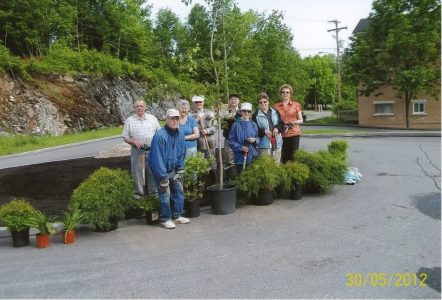La Grande Vie, Housing co-op for autonomous and frail seniors



La Grande Vie (meaning The Great Life) was initiated by two housing co-ops in Sherbrooke (Quebec, Canada) – la Coopérative d’habitation des Cantons de l’Est and La Coopérative d’habitation de la Rive-Gauche – so that their aging tenants could find the support they need while pursuing their cooperative lifestyle. La Grand Vie aims to offer a choice different from the for-profit private senior housing, closer to the values of cooperation those people lived with their whole life, i.e solidarity, education and democracy.
La Grande Vie is a 54-housing unit co-op for autonomous seniors (aged 65 +) offering a secure environment and services supporting tenants who are aging-in-place. With a dozen or so committees and a board of directors run by senior tenants, it offers a stimulating and emancipatory living environment for engaged and energetic older people.
La Grande Vie’s senior residents and executive director are currently working on a second phase of 36 units with services supporting convalescent or frail older people. Including 24/7 assistance and a home automation system, this second phase of development will enable frail older people to age in place, close to their loved ones and give them a chance to still take part in the co-op community. At the moment, those frail older people need to move across the city to find assistance in one of the much more expansive for-profit organisations or in hospital-like public institutions, tearing friendships, families and even couples apart.
Residents say that the democratic governance of the co-op keeps them engaged and learning; in that kind of living environment, they feel useful and don’t fear boredom.
Main target group: Older people in general
Other target group(s): Vulnerable elders (living alone, poor, living with some health problems)
Sector(s): Housing, Long-term care
Other sector(s): Social participation
Desired outcome for older people:
Meet their basic needs
Name: Binette, Sylvie
Email address: Lagrandevie1360@gmail.com
Preferred language(s): Français